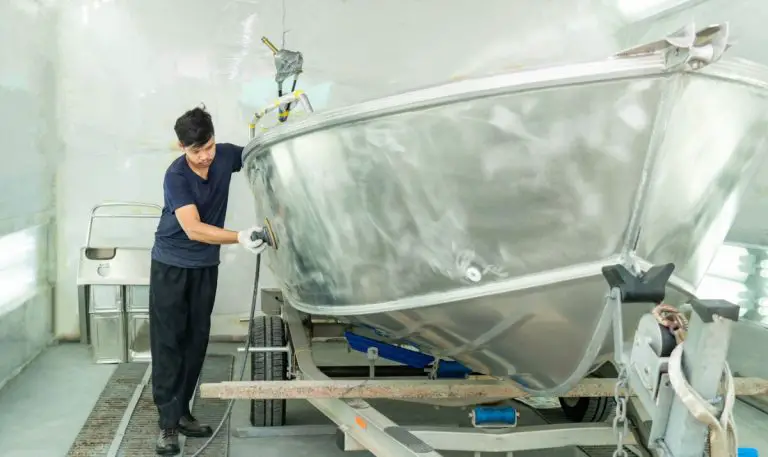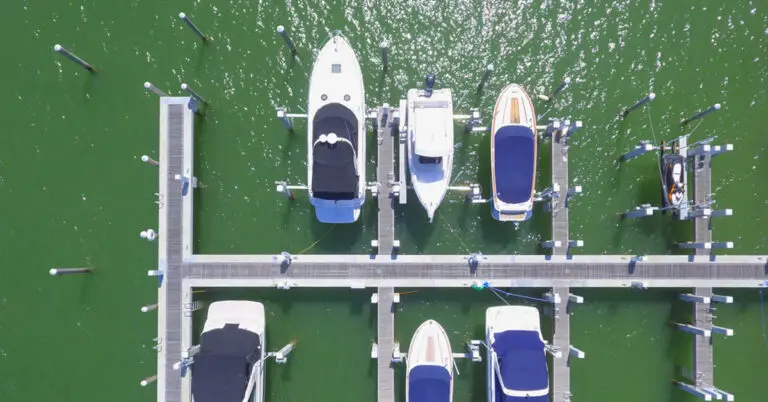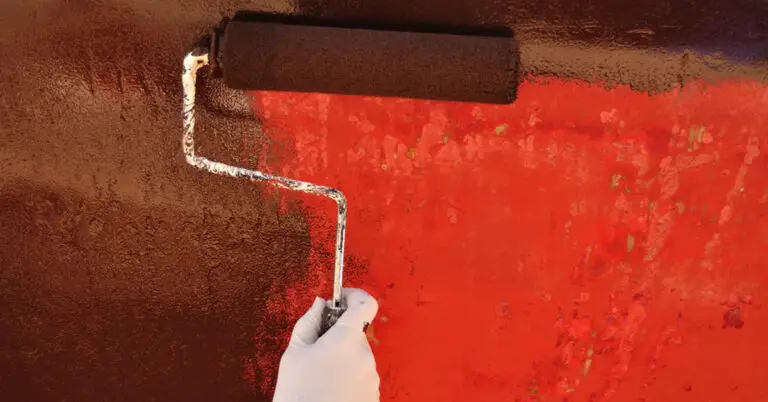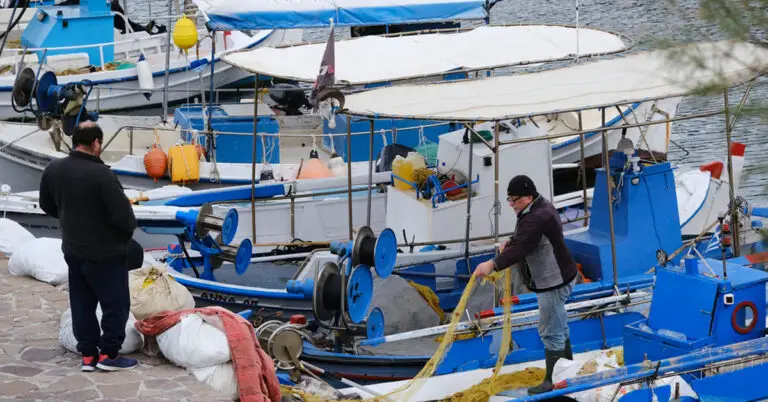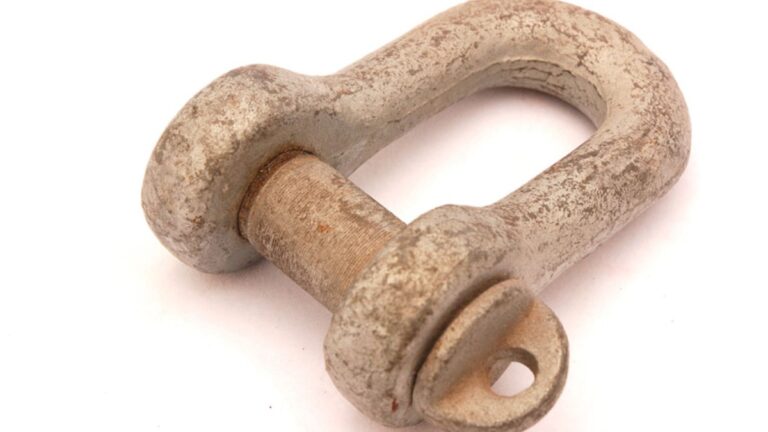This Is What Happens If You Don’t Winterize Your Boat (Yikes!)
What happens if you don’t winterize your boat? If you are a boat owner who lives somewhere cold, you may have asked this question a few times.
Failing to winterize your boat will cause damage to the engine and the boat’s other parts. The water inside the engine will freeze and expand, leading to cracks and, in worst cases, your engine splitting open.
Issues with fuel, mold, mildew, and battery discharge can negatively affect your boat.
If you’re feeling less than enthused about winterizing your boat, this article will discuss what will happen if you don’t winterize your boat to protect it from the cold. We will also give you the simple steps for boat winterization.

What Happens If You Don’t Winterize Your Boat
Living in a place where the temperature drops below freezing is undoubtedly challenging for boat owners. Winterizing your boat will be a part of regular maintenance. If you fail to do so, the avoidable repairs will cost a considerable amount.
Even worse, failing to or forgetting to winterize your boat will cause you to miss the beginning of the boating season.
That said, what happens if you don’t winterize your boat?
I Didn’t Winterize My Boat: What Could Go Wrong?
The Engine May Corrode And Break
Dirty oil and salt can be a host of problems for your boat, especially corrosion. Even worse, leaving dirty oil unflushed before storing your boat for the winter will shorten your engine’s life. It may also reduce the boat’s efficiency.
Mechanical system corrosion is also a problem when you leave dirty oil unflushed. Even if you store your boat somewhere warm in the winter, the engine’s lack of motion will result in issues such as dirt buildup.
Cracks On The Engine And Other Boat Parts
Not draining the water from your engine can lead to cracks. If you don’t winterize your boat, your engine block and heat exchangers may even split open.
Additionally, freshwater cooled engines that do not have enough antifreeze solution can lead to damage to your engine.
Mold, Mildew, And Dirt Buildup Inside And Outside The Boat
Not winterizing and covering your boat will cause it to collect dirt during the winter. Dirt and dust can accumulate on your boat even when you store them in a garage. That said, make sure to cover your boat after winterizing it.
Keeping your boat unventilated during the winter will make it trap moisture. Such can result in mold and mildew. In worse cases, some parts of your ship may rot. The mold, mildew, and rot can cause your entire boat to smell bad.
Battery Discharge
The battery is a part often neglected when winterizing a boat. An unwinterized boat battery will self-discharge when not in use. The reason is that battery acid has a lower freezing point than other fluids.
Once your battery discharges acid, the frozen discharge can also cause internal damage to the inner parts of the battery. It can either reduce the lifespan of your battery or render it useless.
Issues With Fuel
If you use diesel to run your boat, leaving it in an unwinterized ship will lead to algae growth. The algae will clog your boat’s injectors and filters, which can be extremely difficult to clean. The buildup can even cause a plethora of problems.
On the other hand, those who use gasoline for their boats are not safe from problems.
The compounds in the gasoline degrade and evaporate if you leave your boat unwinterized. It can result in deposits, gumming, and dirt in your boat’s engine, which will make it difficult for you to start your boat after the winter. (source)
How Long Can A Boat Sit Without Being Winterized?
Winterizing is a crucial part of owning a boat in colder climates. This process will save you from spending a significant amount on repairs once winter is over.
It would be best to start winterizing your boat before the temperature goes down below freezing point. You will know when the temperature begins dropping by checking weather forecasts since the exact season can differ from one year to another. For instance, you need to start winterizing your boat in Autumn if you live somewhere with cold winters.
But in an instance when you were not able to winterize your boat before the temperature drops below freezing, it will not acquire damages right away. It will take two to three consecutive days with freezing temperatures before your boat experiences issues.
After this period, the water trapped inside the components of your boat will start freezing. It will result in corrosion, cracks, and even irreparable damage to your boat. (source)
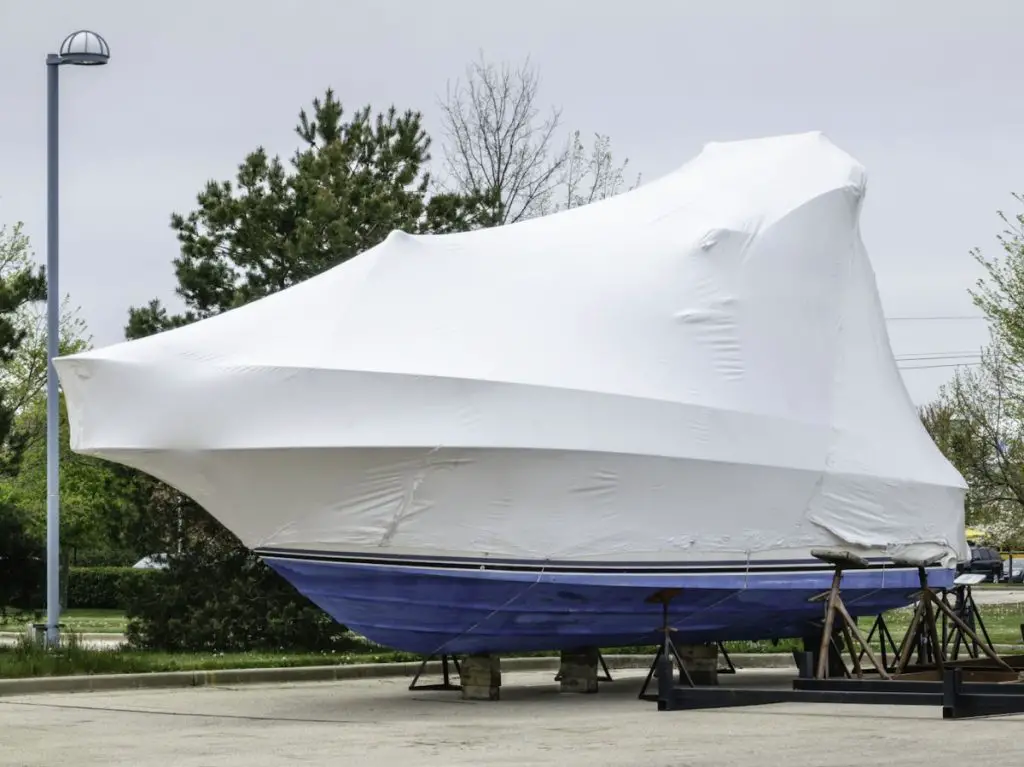
What Temperature Will Freeze Water Within The Boat Engine?
As the water inside your boat engine freezes, it expands and creates a force that leads to cracks on the engine and its parts. Unwinterized boats will start freezing at extended periods when the air temperature is 28 degrees Fahrenheit or lower. Suppose your boat has a freshwater-cooled engine and does not have a proper coolant. In that case, it will start freezing when the air temperature reaches 32 degrees Fahrenheit.
You will not see any sign of freezing on your boat if you leave it in the cold overnight. However, failing to get your winterizing done for more than 24 hours will damage your boat. (source)
Tips For Boat Winterization
Winterizing a boat is preparing it for long-term storage. It may not be a necessary step if you live in a more temperate area. But if you live somewhere very cold, winterizing a boat is almost mandatory.
Moreover, it is not only the engine that requires winterization. There are other items inside your boat that you need to protect and prevent freezing. This way, you can ensure that your entire boat will be ready when the boating season comes.
That said, winterizing a boat is time-consuming. For this reason, there are tips that you can consider before preparing your boat for the winter.
Winterizing A Boat Is Crucial Annual Maintenance
Your boat requires annual maintenance or maintenance every 100 hours. Consider doing winterization along with your yearly maintenance so that you can save some time. The maintenance process includes changing oil, filters, spark plugs, and testing the boat’s batteries.
Don’t Trust Your Instinct
You may think that it never freezes in your area. However, you can never trust your instinct when winterizing your boat. While it did not get too cold the previous year, there is a chance that the temperature will drop the following year.
Since your boat is a prized possession, the best thing to do is to winterize it before the winter. This way, you can ensure that your boat will stay warm and safe from freezing.
Get Heated Storage
If you do not want to winterize your boat, you can choose a heated storage option. If you have some extra money to splurge for such a luxury, that is.
However, heated storage speaks for its price. It can save you from the hassle of draining your water systems and engine. In the long run, heated storage can save you some money since you no longer need to spend money for annual winterization.
The only downside is that your heated storage will not work if it experiences a power outage.
Treat Your Fuel
One of the most crucial parts of your boat during winterization is the fuel tank. Ensure that you winterize your fuel tank to ensure you can run your boat once the winter is over quickly. (source)
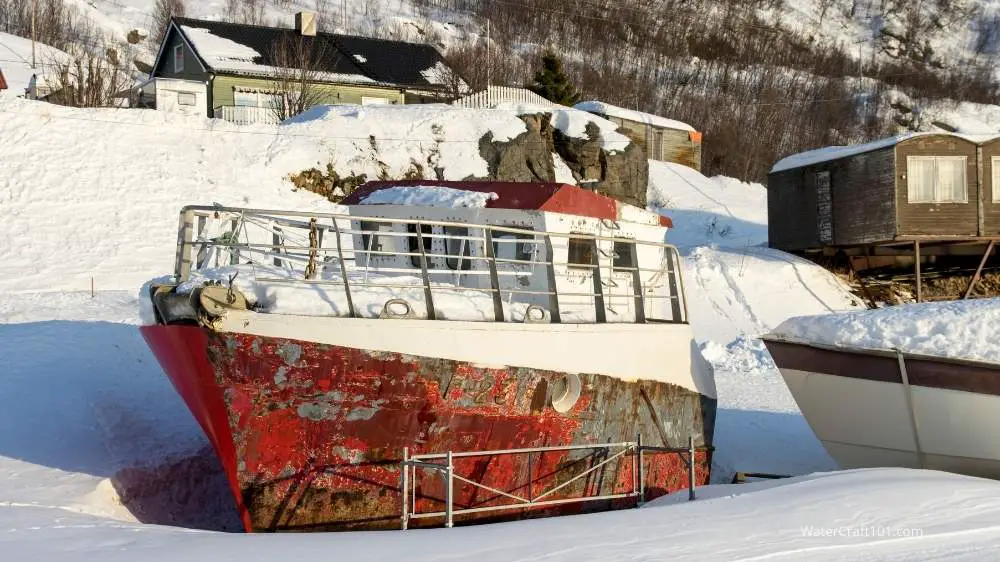
Steps For Winterizing A Boat
Winter is dangerous for your boat. The freezing temperatures can damage the most crucial parts of your boat, such as the engine blocks.
True enough, you can get professional help to prepare your boat for hibernation. However, it is the busiest time for these professionals.
For this reason, you should take care of the matter yourself. Here are the things that you need to do to winterize your boat:
1. Replace The Engine Oil
The old oil in your boat’s engine contains acids and moisture. It can cause buildups that can block your engine and cause cracks in the winter. For this reason, you need to flush out the old oil and replace it with a new, clean one.
To flush out the dirty oil, warm up the engine while the boat is in the water. This way, you can get most of the old oil out along with the impurities.
Once the dirty oil is out, replace it with high-quality oil and oil filters suitable for your boat’s engine.
2. Flush Out The Coolant
Your engine has cooling water to prevent it from overheating. However, the same water that protects your engine from acquiring damage can also cause it to break in the winter.
Water expands when it freezes. So, before such a thing happens, drain and flush out the water from your engine.
Use a device similar to a garden hose to flush your cooling system with clean water. Do this step until your engine is at average operating temperature.
Remove the drain plugs after flushing. Removing the water pump hose may also be necessary to ensure that you have drained all the water.
3. Stabilize Your Boat’s Fuel
Your engine’s fuel will start deteriorating when you don’t use your boat for two months or more. Such will result in gum buildup, which can negatively affect the lifespan and performance of your engine.
For this reason, you need a top-notch marine fuel stabilizer to keep your fuel from deteriorating.
Once you have removed the old fuel from your engine, fill up the tank with fuel you know is fresh to prevent corrosion. Then, let the engine run for a minute or two in order for the fuel to run throughout the system.
4. Spray With Fogging Oil And Apply Antifreeze
Engine oil drains away while your boat is in your garage. As a result, the engine’s internal components become exposed to harsh elements. It can lead to two problems that can affect the performance of your engine:
- scuffing
- corrosion
Fortunately, you can prevent this issue by using a fogging oil spray. The oil will penetrate the engine to protect its parts from corrosion.
Moreover, adding antifreeze to your engine will prevent moisture from seeping in.
5. Replace The Gear Oil
You need to drain the oil gear oil and replace it with a new supply for this step. Please do not leave the gear oil while it drains, as you need to check for moisture contamination. This issue is indicated by:
- water coming out of the drain first
- lumpy oil
- milk-colored oil
You need new seals before winter comes if you see these three indications.
6. Apply Lubricant To The Grease Fittings
Use a high-quality marine lubricant for your engine’s grease fittings. This way, you can prevent corrosion, rust, and oxidation.
7. Clean, Wax, And Cover
Before storing your boat for the winter, clean and wax it, then cover it with a durable boat cover or shrink-wrap it to ensure that no dirt will contact it.
If you have a budget, the best way to store your boat is to purchase dry storage. However, this can be pretty expensive, especially if you live somewhere with long winter. (source)
Where To Store A Boat In The Winter
After preparing your boat for the winter, you need to decide where to store it. If you have a huge garage, it can be a suitable place to keep your boat from freezing. You can also store your boat at:
- a barn
- a marina
- a warehouse
Of course, storing your boat in your garage will save you some money. However, the heater in your garage may not be enough to prevent moisture from seeping into your boat’s engine.
On the other hand, storing your boat in a warehouse will cost you money. There may also be a chance for someone to access it without your permission.
The safest way to store your boat for the winter is to get a parking spot at a self-storage facility. Your boat will be secure as such facilities have on-site managers and security measures.
However, a self-storage facility can be an expensive option. Still, it is the safest and best way to prevent your boat from acquiring damage in the winter. (source)
Summary
Now you know what happens if you don’t winterize your boat. Not winterizing your boat can lead to damage to the engine. The frozen water coolant will expand, thus cracking the metal parts of your engine.
Your boat’s batteries will also discharge acid when the temperature drops, causing a decrease in its lifespan.
Fortunately, you can avoid damage by winterizing your boat before the winter comes.
When winterizing your boat, make sure to drain all the water from the engine. Replace the oil and fuel with a fresh supply to prevent gum buildup that can lead to clogging. You will also need to spray an antifogging oil to avoid corrosion and scuffing.
True enough, winterizing your boat can be costly. However, failing to do so will lead to damage, which is much more expensive to repair.
Sources:
- Claiborne S. Young, Power Cruising: The Complete Guide to Selecting, Outfitting, and Maintaining Your Power Boat. Canada: Pelican Publishing, 1999. https://books.google.com.ph/books?id=_7XwuOd800wC&pg=PA198&dq=How+Long+Can+A+Boat+Sit+Without+Being+Winterized?&hl=en&sa=X&ved=2ahUKEwjQ8NepuuD2AhUOPnAKHfgiAxoQ6AF6BAgLEAI#v=onepage&q=How%20Long%20Can%20A%20Boat%20Sit%20Without%20Being%20Winterized%3F&f=false.
- Allen D. Berrein. “License To Chill.” Boating, November 1998, https://books.google.com.ph/books?id=_1AqBJnR-7YC&pg=PA58&dq=will+my+boat+freeze+in+the+winter&hl=en&sa=X&ved=2ahUKEwil9MKcvuD2AhUxMHAKHUx3CCoQ6AF6BAgGEAI#v=onepage&q=will%20my%20boat%20freeze%20in%20the%20winter&f=false.
- Mark Nicholas, The Essentials of Living Aboard a Boat: The Definitive Guide for Liveaboards. USA: Paradise Cay, 2013. https://books.google.com.ph/books?id=wcaR-diN5osC&pg=PA211&dq=What+Temperature+Will+Freeze+Water+Within+The+Boat+Engine?&hl=en&sa=X&ved=2ahUKEwi_z9iuvuD2AhUEaN4KHbanDJoQ6AF6BAgJEAI#v=onepage&q=What%20Temperature%20Will%20Freeze%20Water%20Within%20The%20Boat%20Engine%3F&f=false.
- Sandy Lindsey, Fast Fixes for Your Boat: 1001 Top Boat Maintenance Tips. UK: A&C Black, 2013. https://books.google.com.ph/books?id=fcakAwAAQBAJ&pg=PR6&dq=Tips+For+Boat+Winterization&hl=en&sa=X&ved=2ahUKEwjk86rRvuD2AhURRt4KHQtBApEQ6AF6BAgLEAI#v=onepage&q=Tips%20For%20Boat%20Winterization&f=false.
- “Winter Woes Avoided.” Boating Life, 2003. https://books.google.com.ph/books?id=GaNLAiXZ0GoC&printsec=frontcover&source=gbs_ge_summary_r&cad=0#v=onepage&q&f=false.
- Donald Launer. Lessons from My Good Old Boat. USA: Sheridan House, 2007. https://books.google.com.ph/books?id=lJs3zmHQrgAC&pg=PA228&dq=will+my+boat+freeze&hl=en&sa=X&ved=2ahUKEwjXwNPJveD2AhXTA94KHV7LBtAQ6AF6BAgFEAI#v=onepage&q=will%20my%20boat%20freeze&f=false.


